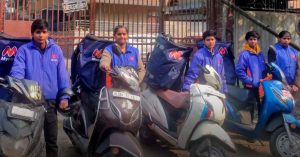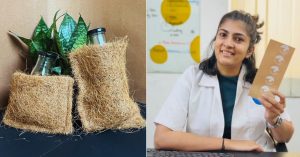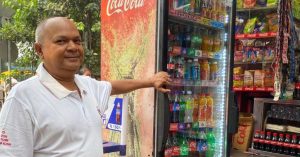This IITian Quit His Job To Become A Millet Entrepreneur; Clocks Rs 2.5 Crore In Revenue
Unable to find millet products suitable for his diabetic father, Sai Krishna Popuri took matters into his own hands. This led to the creation of Health Sutra, a millet-based brand that aims to make this superfood both tastier and more accessible.
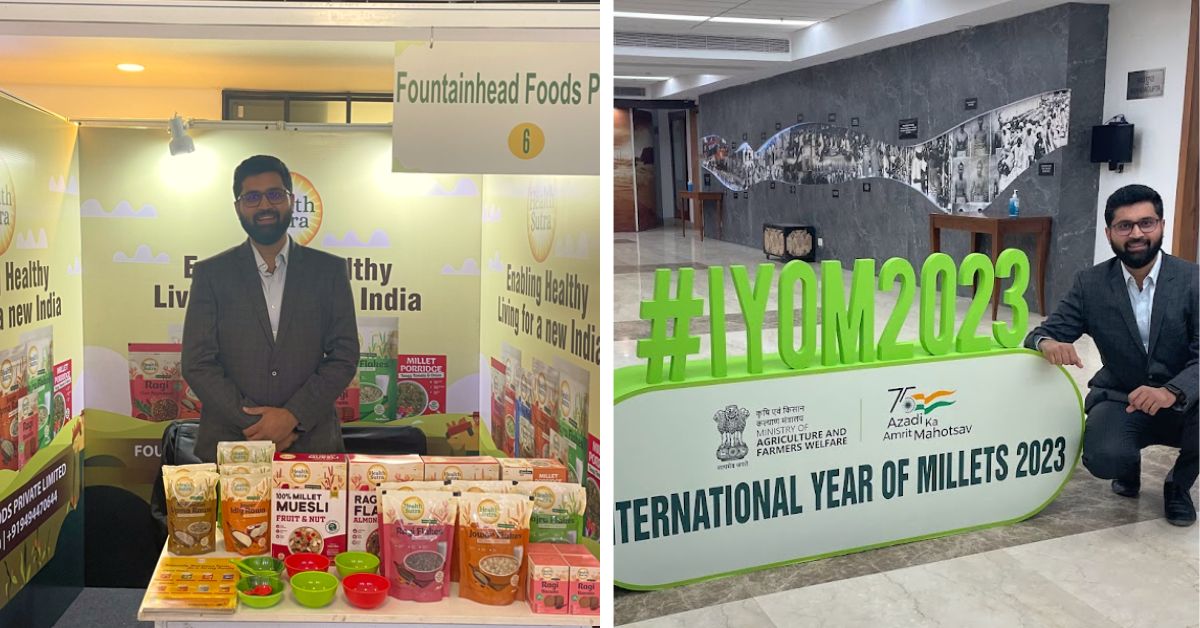
A common topic of discussion in my house whenever one of us falls sick revolves around our unhealthy diets. The conversation tends to escalate with my mother passionately emphasising how diets in the past were enriched with superfoods like jowar, bajra, and ragi.
True enough, millets are now being recognised as superfoods worldwide. In 2023, the Indian government designated it as the “Year of Millets” to underscore their numerous benefits.
However, a challenge arises due to the limited availability of dedicated stores offering a variety of millets. “In our fast-paced world, what most of us need is ready-to-use recipes, and not many producers offer a wide range of millet options. Recognising this gap, I founded my own millet startup,” says Sai Krishna Popuri, the founder of Health Sutra, as shared with The Better India.
Sai, the entrepreneur behind a millet-based brand, offers a diverse range of millet products through his startup. From Jowar Flakes to Millet Muesli and Millet Idli Rawa pre-mix, the brand aims to seamlessly integrate this superfood into your daily diet. With thousands of products sold, the brand has achieved an impressive annual revenue of Rs 2.5 crores.
‘For a healthy and long life’
After completing his engineering from the Indian Institute of Technology in Delhi, Sai decided to take a corporate job in the education sector.
“While I was working a job, I wanted to get into ventureship. I had always dreamt of being an entrepreneur. I was only waiting for the right idea to come along for me to take the leap,” he shares.
Sai recalls that while he was in college, he wanted to set up his own business and had a couple of ideas too. “While there were a lot of ideas, I wanted to do something that stood out and was benefitting the society too,” he says.
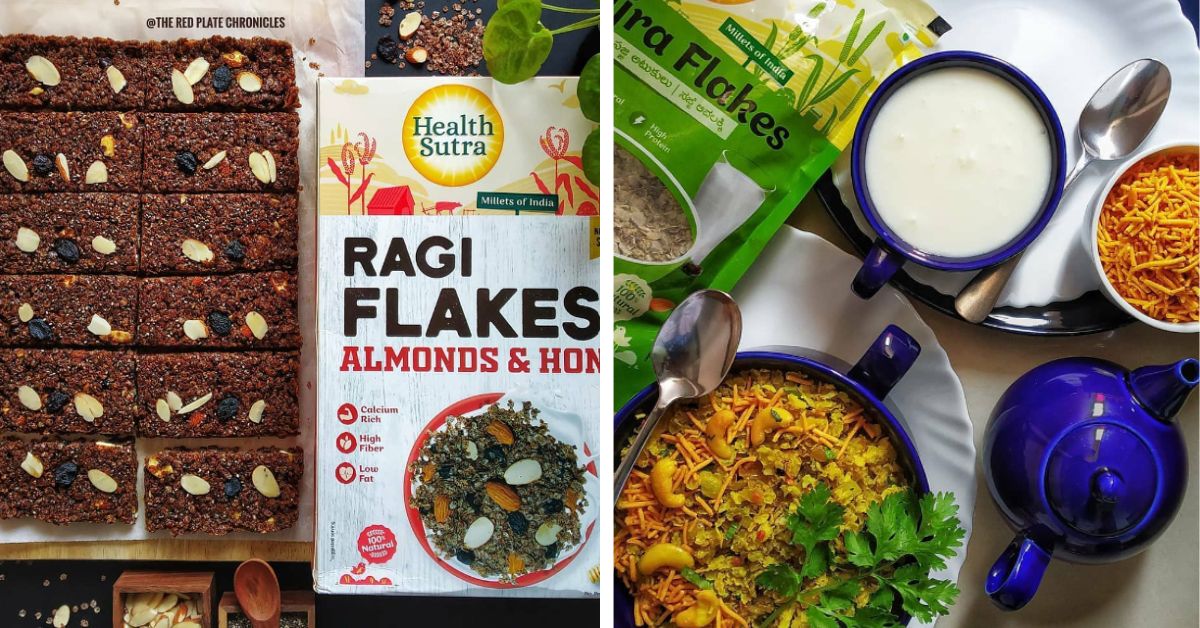
Food startups have always been an area of interest for Sai. “Food tech has always been interesting to me. Before Health Sutra, I was working on an Indo-Chinese startup in Hyderabad,” he says.
“Around the same time, my father was diagnosed with diabetes. The doctor recommended various alternatives such as wheat, oats, or quinoa for his diet. I couldn’t help but wonder – oats are fine, but quinoa is imported from South America. Why opt for something from halfway across the world when we have equally good options right here?” he adds.
Wanting to find alternatives in India, he went looking for options. He met a relative who worked in the food science department at a university in Andhra Pradesh. “She was passionately discussing millets and how they are poised to become the next big thing. Millets, being deeply rooted in our land, boast indigenous qualities, robustness, and drought resistance, making them a highly beneficial choice,” he says.
On further research, Sai realised the reason why the superfood was not as popular as others.
“The processing technology for wheat, rice, and corn has advanced significantly. However, the same cannot be said for millets. The limited progress in milling and further processing of millets creates a situation where presenting millets to consumers in a modern context, or offering them a contemporary perspective on their traditional foods and roots, becomes challenging,” he says.
To change the perspective towards millet and to make it more easily accessible to consumers, Sai started his research and development in 2013.
“Our grandmas were right to ask us to include millets in our diets as they are traditionally considered to be healthy,” he says.
By 2014, he was ready with his first product. “We launched jowar porridge under our brand Health Sutra and it got a great response,” he recalls.
Since its launch, the company has experienced significant growth, introducing a diverse range of products. These include cereal flakes such as Jowar Flakes, Ragi Flakes, and Barley Flakes, as well as seven different types of rava for idli and upma, and biscuits made from ragi and jowar.
Making millets available to all
The brand has a good customer base in Telangana and Andhra Pradesh. Recalling people’s initial reaction, Sai says, “During that time, my goal was to offer an alternative to masala oats. The response was positive, especially from those who tried it once or twice – they enjoyed the taste. Word spread and more people began to give it a try.”
He adds, “Interestingly, even today, companies like Soulful and possibly now Slurp Farm, no major player has emerged in this space. As a result, people still don’t have many options to explore.”
The brand now boasts an annual revenue of 2.5 crores and has a team of nine people.
While these numbers signal success, Sai emphasised the patience required to reach this point. “It’s been a slow burn for us; the industry is still nascent, and people are only now beginning to open up. Back in 2013, when I started my research, there were no avenues available. Institutes dedicated to this cause were scarce, and the technology to do simple things like making uttapam from jowar was not readily accessible,” he explains.
“However,” he continues, “Times have changed significantly since then. Now, we have dedicated institutes for research, and more individuals are investing in millet-based startups.”
The international year initiative for millets last year has undoubtedly made a positive impact.
“However, I believe it’s still in the awareness stage rather than a point where a habit has been fully formed. People are trying, and experimenting, but it hasn’t become a daily habit like eating rice or chapati. That, I believe, will take some more time,” he says.
The products by Health Sutra are currently available in close to 3,000 supermarkets in Andhra Pradesh and Telangana. They also ship them country-wide via Amazon.
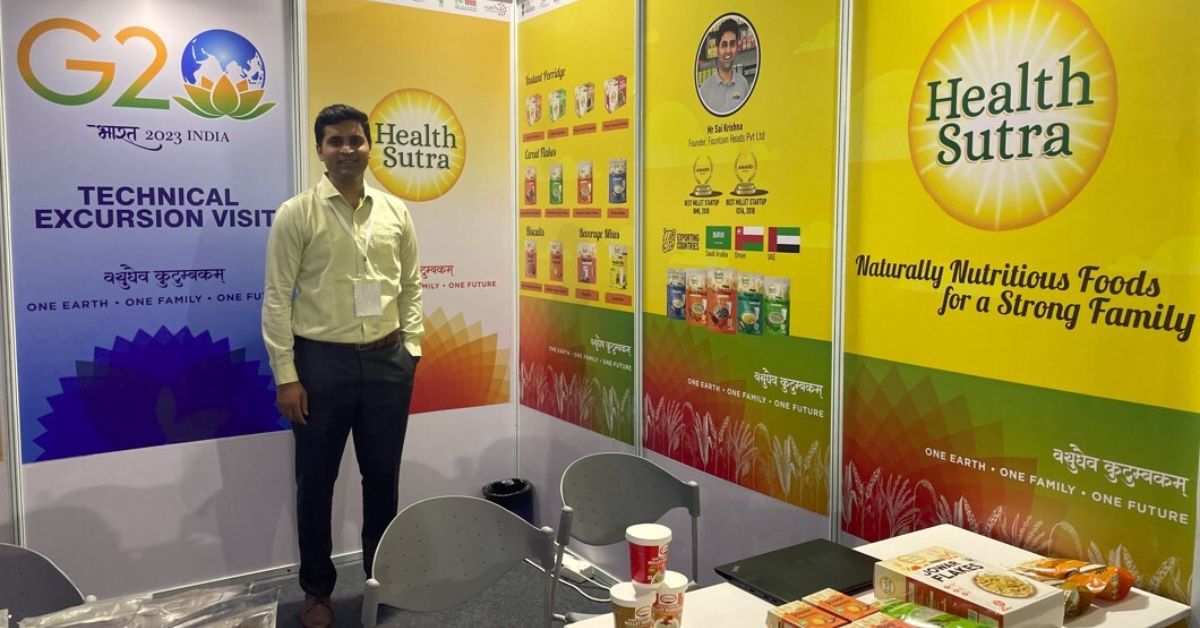
It had been a while since P Lalitha found the benefits of millet but was looking for ideas to incorporate it into her kid’s diet. “I have been using Health Sutra’s Millet Idly Rawa for years now, it tastes so good that my kids love to eat idli. I often make sweets with this rawa. I always prefer to have my kids with zero maida snacks and the Health Sutra biscuits come in handy,” she says.
The products are great and healthy. They have zero additives and sugar which makes them her go-to choice.
As for the future, Sai plans to expand his products to make it more child-friendly.
“Currently, millet products haven’t made significant inroads into the kids’ segment, particularly in high-volume kids’ food categories, which is an area we are keen on exploring further. Our focus is on making millets more digestible, palatable, and accessible at a more convenient price point. Presently, millet products tend to be a bit more expensive compared to their conventional counterparts,” he says.
(Edited by Padmashree Pande)
If you found our stories insightful, informative, or even just enjoyable, we invite you to consider making a voluntary payment to support the work we do at The Better India. Your contribution helps us continue producing quality content that educates, inspires, and drives positive change.
Choose one of the payment options below for your contribution-
By paying for the stories you value, you directly contribute to sustaining our efforts focused on making a difference in the world. Together, let's ensure that impactful stories continue to be told and shared, enriching lives and communities alike.
Thank you for your support. Here are some frequently asked questions you might find helpful to know why you are contributing?






